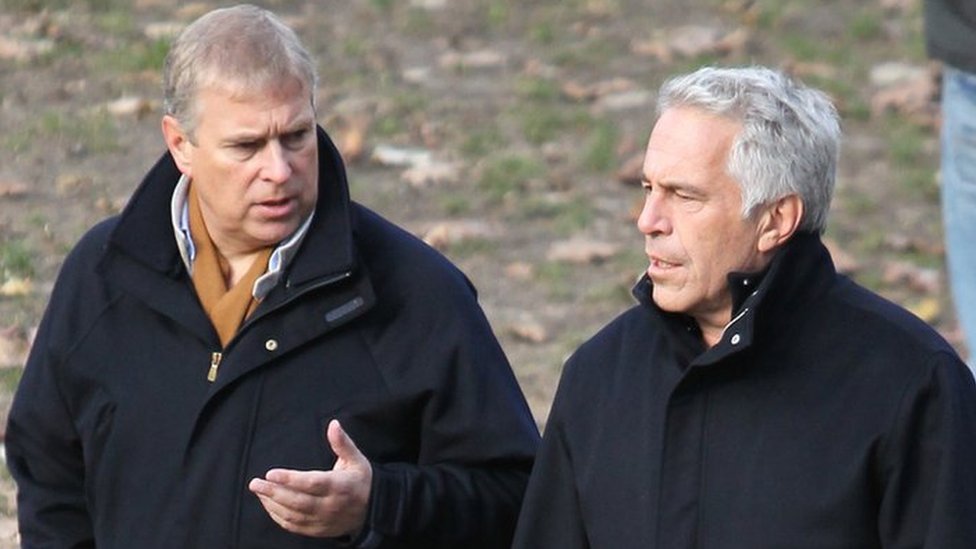EXPLOSIVE NEW LEASE REVELATIONS: Fury as Taxpayers Foot Bill for Prince Andrew’s Life of Luxury — And the Financial Fallout Behind It
A fresh wave of outrage has engulfed the Royal Family after explosive new documents revealed Prince Andrew has paid virtually no annual rent on his 30-room luxury mansion, Royal Lodge, for over two decades. The revelation, emerging amid a week of intense new scrutiny over his past associations, has triggered a massive public outcry and forced a critical, real-time debate over the financial accountability of the monarchy and the enormous cost to the British taxpayer.
This isn't just about 'optics'; it's about hard cash and public trust.
The shock disclosure confirms one of the most astonishingly advantageous property deals in modern royal history, effectively allowing the Duke of York to live rent-free on a vast, taxpayer-supported estate since 2003.

Royal Lodge in Windsor Great Park — the 30-room mansion leased to Prince Andrew, now at the center of a financial and political storm over unpaid rent and taxpayer costs.
BREAKING DOWN THE 'RENT-FREE' SCANDAL
The controversy centres on the 75-year lease Prince Andrew, 65, secured on Royal Lodge in Windsor Great Park. The latest leaked details, secured by journalists this week, have laid bare the staggering financial terms:
- The Upfront Cost: In 2003, Andrew paid a one-off premium of £1 million for the lease.
- The ‘Rent’ Clause: The legally binding agreement stipulates an annual rent of just "one peppercorn (if demanded)". This archaic formality means that, in practice, no substantial rent has been paid in 22 years—a period in which a standard market rental rate would have topped £5.7 million (based on the approximate annual figure of £260,000).
- The Renovation Credit: Andrew committed £7.5 million to refurbishments, which was treated as an advance on his rent payments, effectively shielding him from ongoing costs that an ordinary tenant would face.
Shadow Justice Secretary, Robert Jenrick, did not mince words, telling The Times that the public is "sick of Prince Andrew" and declaring: "I don't see why the taxpayer frankly should continue to foot the bill... He shouldn’t have any taxpayer subsidies going forward."

Prince Andrew photographed with financier Jeffrey Epstein — their association continues to cast a long shadow over the Duke’s reputation and finances.
The £30 Million Mansion: A Financial Time Bomb
Royal Lodge is not just a house; it’s a colossal, heritage estate valued in excess of £30 million. Its sheer size—30 bedrooms plus extensive grounds—means the running and maintenance costs alone are astronomical, estimated to be in the hundreds of thousands of pounds annually.
This raises the most urgent financial question: Who is paying the multi-million-pound upkeep bills now that King Charles III has reportedly cut Andrew’s personal allowance?
Sources close to the Palace suggest the King has been desperately trying to persuade his brother to downsize, concerned that Andrew is attempting to maintain a lifestyle he "simply cannot afford." Yet, Andrew has remained resolute, citing his "cast-iron" lease, despite the intense pressure.
CRISIS CLAUSE: The most shocking financial kicker? If Andrew is finally compelled to leave before the 2078 lease expiry, the Crown Estate—which manages property on behalf of the public—could be forced to compensate him by as much as £558,000! The taxpayer could literally end up paying the Prince to vacate the house he has lived in rent-free for decades.
FINANCIAL FALLOUT: Why This Lease Affects Your Wallet
For the consumer audience, this scandal extends far beyond royal gossip. It exposes systemic flaws in how public assets—specifically, the vast Crown Estate—are managed and leased out.
- Public Money vs. Private Gain: The Crown Estate's profits are returned to the Treasury, directly benefiting national finances. By granting a de facto rent-free, multi-decade lease on a prime, £30 million asset, the Estate has effectively starved the Treasury of millions in potential revenue. This is money that could have been used for public services.
- Accountability and Transparency: Experts are now demanding that royal finances be subjected to the same rigorous accountability and governance standards as any other public institution. Sir Alistair Graham, former chairman of the Committee on Standards in Public Life, summarised the mood: "The issue is not just about optics—it’s about public value. When Crown assets are effectively privatized for personal use without meaningful rent, the taxpayer loses both money and trust."
- The New Epstein Scrutiny: The financial controversy deepens as Prince Andrew faces renewed scrutiny over his past links to the disgraced financier Jeffrey Epstein. The Metropolitan Police has confirmed it is "actively reviewing" allegations that Andrew requested a police officer obtain personal details about his accuser, Virginia Giuffre—who published her posthumous memoir this week, reigniting the scandal. With Andrew's finances increasingly opaque, his ability to afford his lavish lifestyle without a public income is now under the most powerful microscope yet.
A Royal Reckoning: The End of Privilege?
The immediate fallout is severe. Calls are mounting in Parliament for Andrew to be stripped of his remaining royal titles—a rare, dramatic move requiring an Act of Parliament.
Whether King Charles ultimately prevails in compelling his brother to move out remains to be seen. But what is beyond doubt is that this financial scandal—a royal’s life of luxury at a colossal, unseen public expense—has become a defining moment.
As the UK struggles with a cost-of-living crisis, the optics of the unpaid royal lease are simply untenable. The pressure is building for a complete overhaul of royal financial agreements, demanding an end to a tradition of privilege that can no longer be justified to a struggling public. The financial foundation of the monarchy itself is now on trial, and the verdict from the public is overwhelmingly critical.
Prince Andrew: Fact File & Net Worth
Full Name: Andrew Albert Christian Edward
Title: Duke of York (relinquished active use in 2025)
Born: February 19, 1960 – Buckingham Palace, London
Parents: Queen Elizabeth II & Prince Philip
Residence: Royal Lodge, Windsor Great Park (75-year lease since 2003)
Spouse: Sarah Ferguson (m. 1986–1996)
Children: Princess Beatrice & Princess Eugenie
Military Service: Royal Navy helicopter pilot; Falklands War veteran
Prince Andrew Net Worth (2025): Estimated £5 million (~US$6.3 million)
Main Income Sources: Former royal allowance (ceased 2023), naval pension (£20k/yr), private investments
Key Assets: Leasehold on Royal Lodge; previously owned Swiss ski chalet (since sold)
Major Controversies: Epstein association; Virginia Giuffre lawsuit (settled out of court)
Financial Context: No ongoing public funding; property and legal costs have strained finances.














